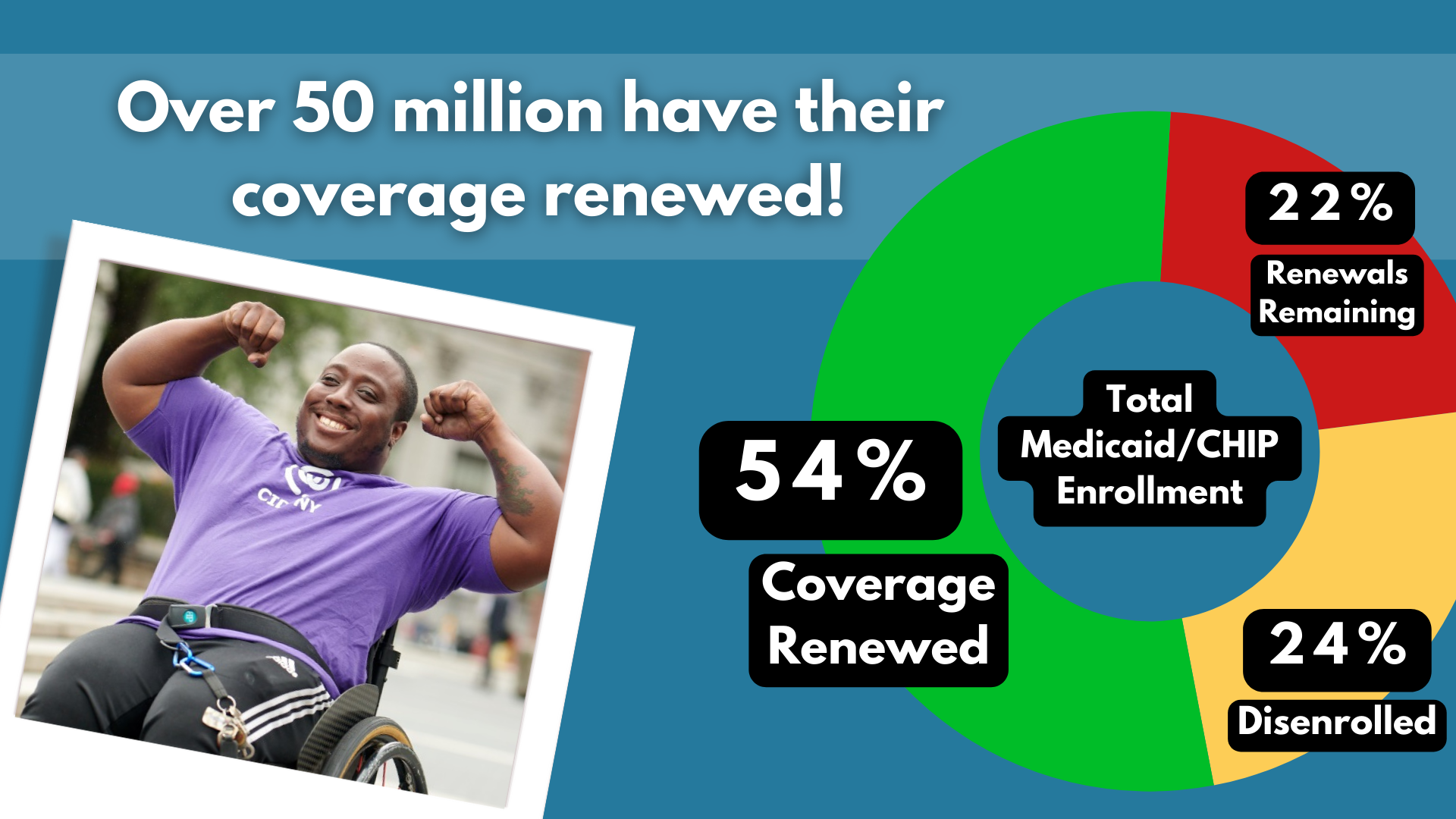The NDNRC newsletter will be published on a biweekly basis until the end of the summer.
As of June 14, states have reported renewal outcomes for more than half of those enrolled in Medicaid/CHIP, according to data from the KFF with 20.3 million renewals still remaining. 24% of those who completed the renewal process were disenrolled and 50.8 million enrollees were able to qualify for renewed coverage. The large range of disenrollment rates in each state varies, with the highest of 56% being in Utah and the lowest of 13% in Maine and North Carolina. Out of all states with available data, 69% of all those disenrolled were due to procedural reasons.
States were originally expected to complete phasing out continuous enrollment provisions from the pandemic by June 2024. As of June 2024, 11 states have been granted extended timelines and all states must continue reporting outcomes from the renewals, as reported by Georgetown University’s Center for Children and Families (CCF).
The Congressional Budget Office (CBO) published the 2024-2034 Health Insurance Coverage Projections. In this research article, the CBO predicted that the uninsured rate would rise to 8.9% in 2034 due to the end of pandemic-era provisions, greatly impacting adults aged 19 to 44. CCF noted important policies that could continue to keep people covered and decrease uninsured rates.
HHS’ Office for Civil Rights (OCR) continues to ensure that people with disabilities can live in their own homes and communities through an agreement with the State of Iowa through Section 504 of the Rehabilitation Act and Section 1557 of the Affordable Care Act. This decision was made after a complaint was filed by Garret Frey and stated that the State of Iowa violated his rights by not providing 24-hour home-based support and services that would enable him to live at home.
HHS’ OCR will help improve communication for and with deaf parents thanks to a complaint filed by deaf parents who alleged that the Puerto Rico Department of the Family’s Administration for Families and Children did not provide sign language interpreters for the deaf parents during an investigation on regarding their minor children.
The Center for Medicare and Medicaid Services (CMS) will award 18 states to enhance, implement, and expand Medicaid and CHIP in school-based services. This will greatly benefit children with disabilities in obtaining and maintaining healthcare coverage.
In May 2024, the Department of Health and Human Services (HHS) released a regulation that allowed recipients of the Deferred Action for Childhood Arrivals (DACA) the opportunity to enroll in Marketplace plan coverage. CCF posted finalized rules continue to impact the new regulation.
CCF analyzed results from the RAPID Survey Project and found that the biggest stressors for families with young children were childcare, housing, and health care. This article highlighted the importance of CHIP and Medicaid for young children and increased positive health outcomes when utilized.
CCF covered a report that analyzed state efforts of Medicaid Section 1115 to address health-related social needs in pregnant and postpartum people through housing and nutrition supports. This program would benefit mothers with disabilities and their families.
Connecticut, Idaho, and Indiana were selected to participate in the Medicaid Managed Long-Term Services and Supports Learning Intensive through the National Academy for State Health Policy (NASHP). This will include data collection, quality measurement, stakeholder engagement, and other strategies to promote LTSS that are used by people with disabilities.
The Administration announced $31.4 million in funding opportunities for priority behavioral health needs. This funding will be used for marginalized communities, such as the disability community, in weaving behavioral and physical health to achieve overall well-being.
The American Association on Health and Disability hosted a webinar through the All of Us Research Program discussing community care and mental health, as a part of the 2023-2024 Disability and Health Webinar series. Learn more about the All of Us Research Program and how inclusive research might support better health for all: https://bit.ly/JoinAOU-June6.
Archives of our weekly updates are available on the NDNRC website. Follow us on Twitter/X at @NDNRC!

